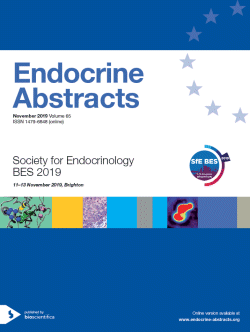Searchable abstracts of presentations at key conferences in endocrinology

Society for Endocrinology BES 2019
Brighton,
United Kingdom
11 Nov 2019 - 13 Nov 2019

Come and exchange knowledge, share experiences and strengthen collaborations across our global community of endocrinologists!



